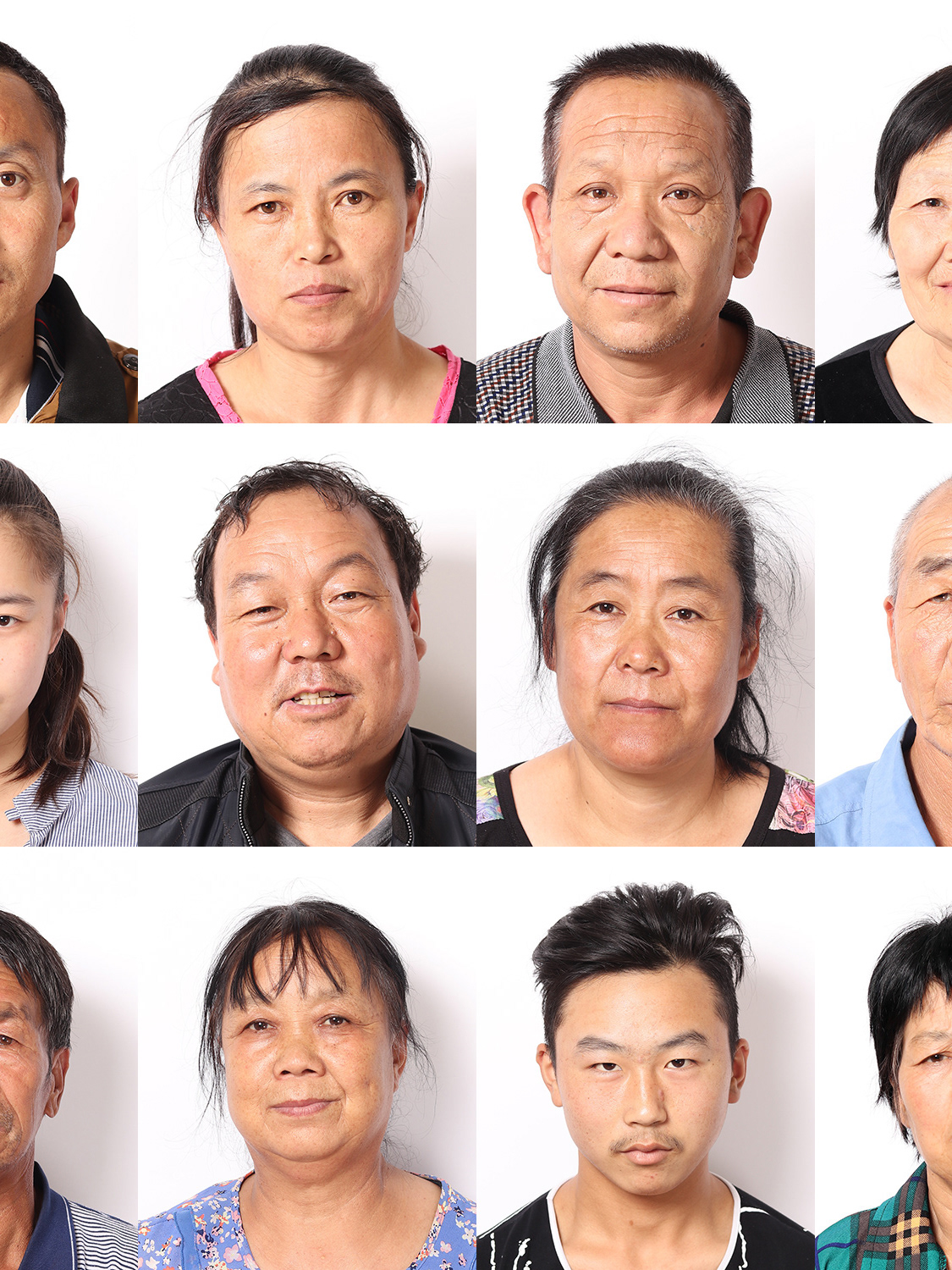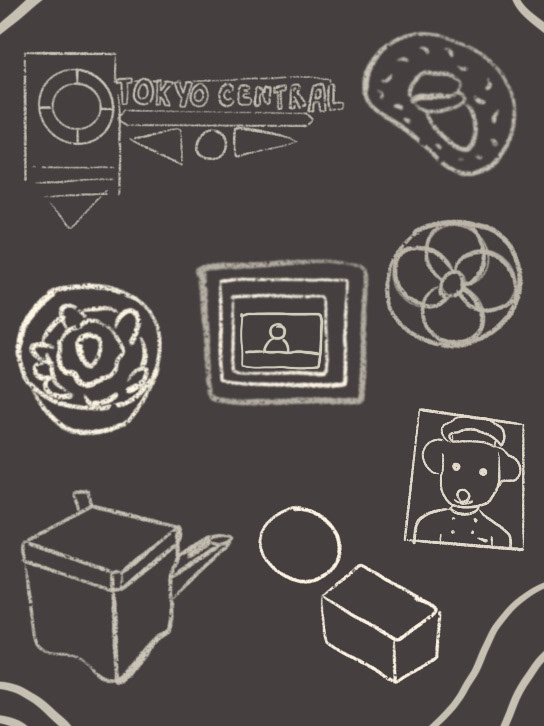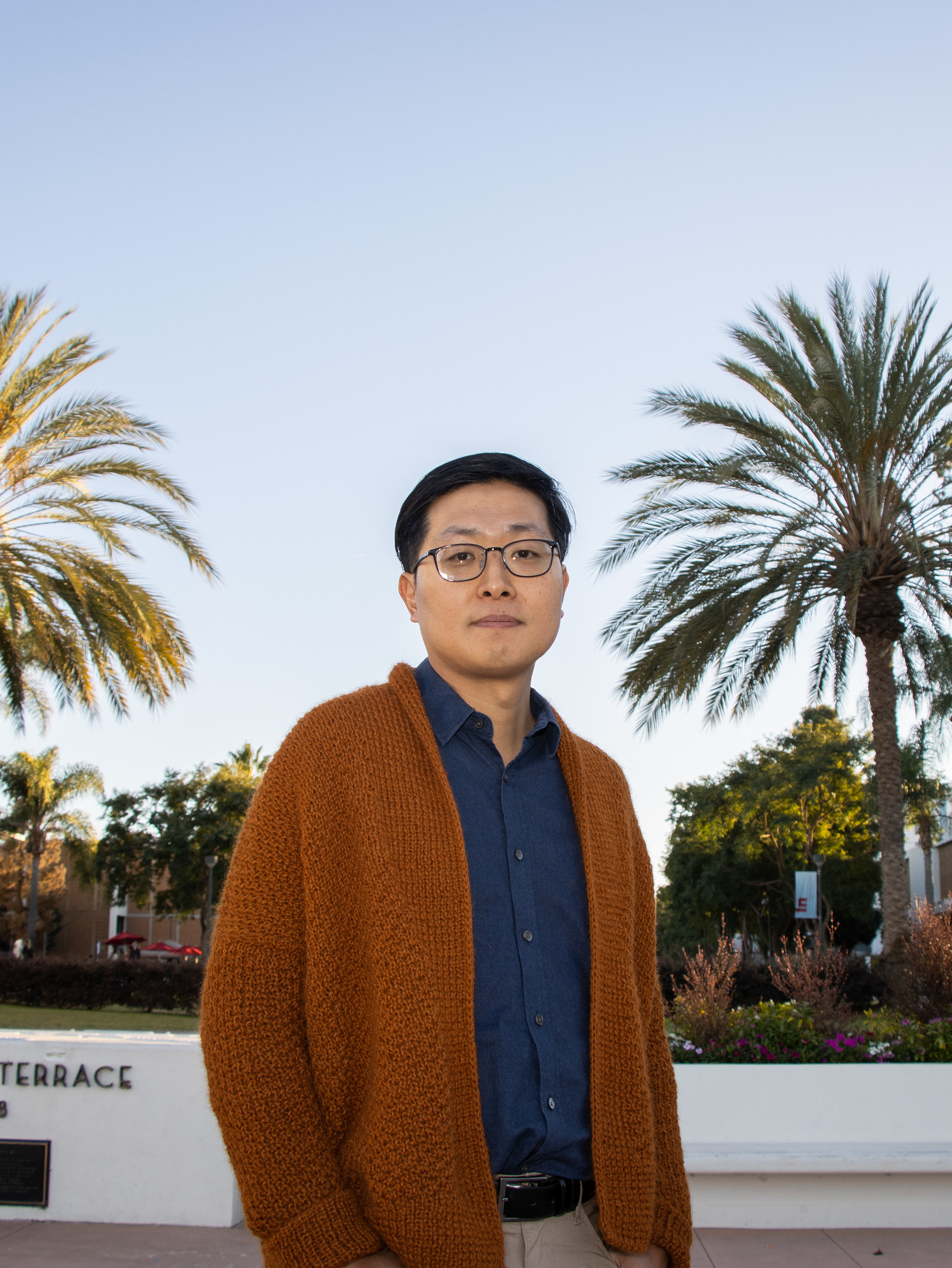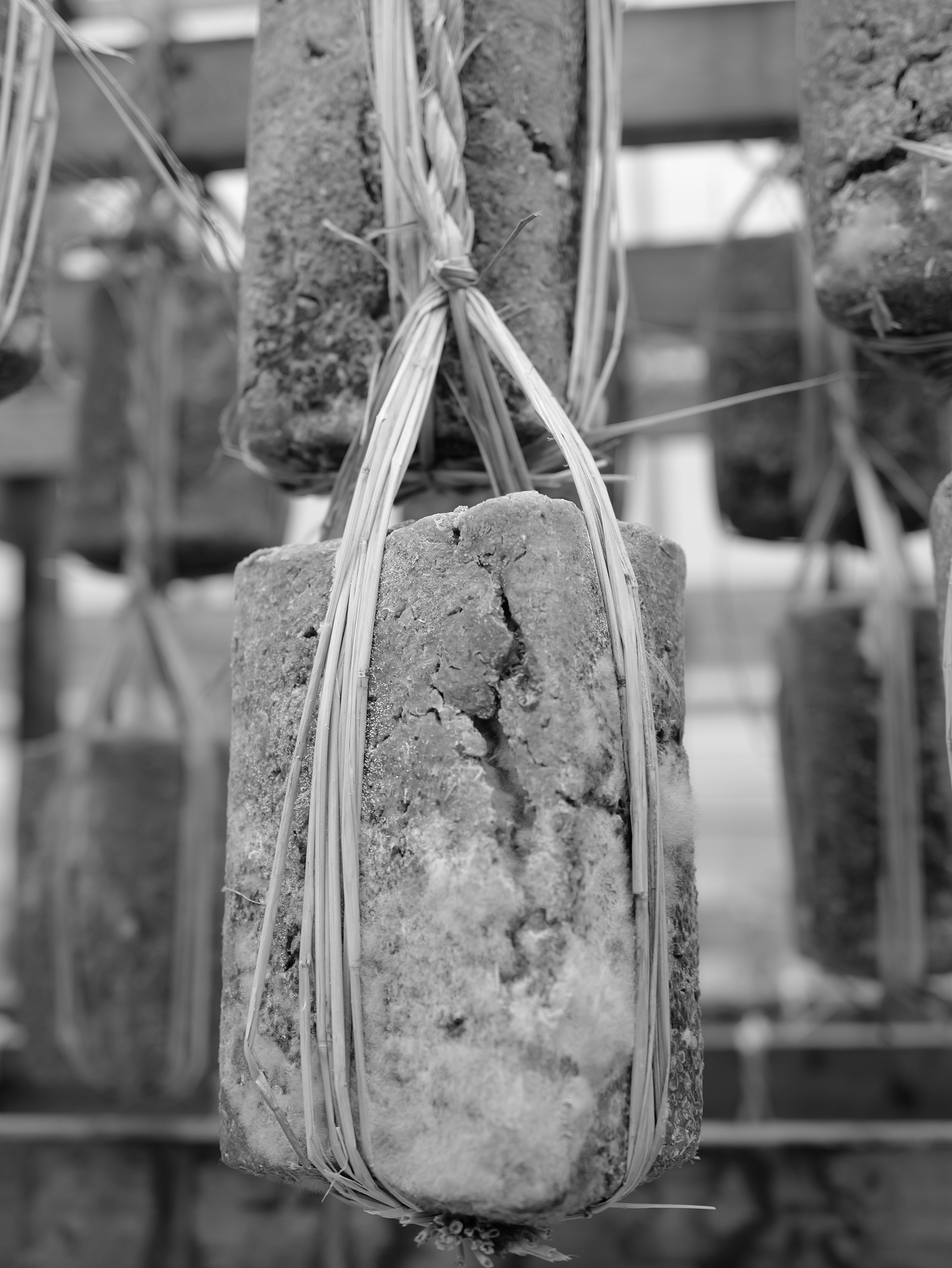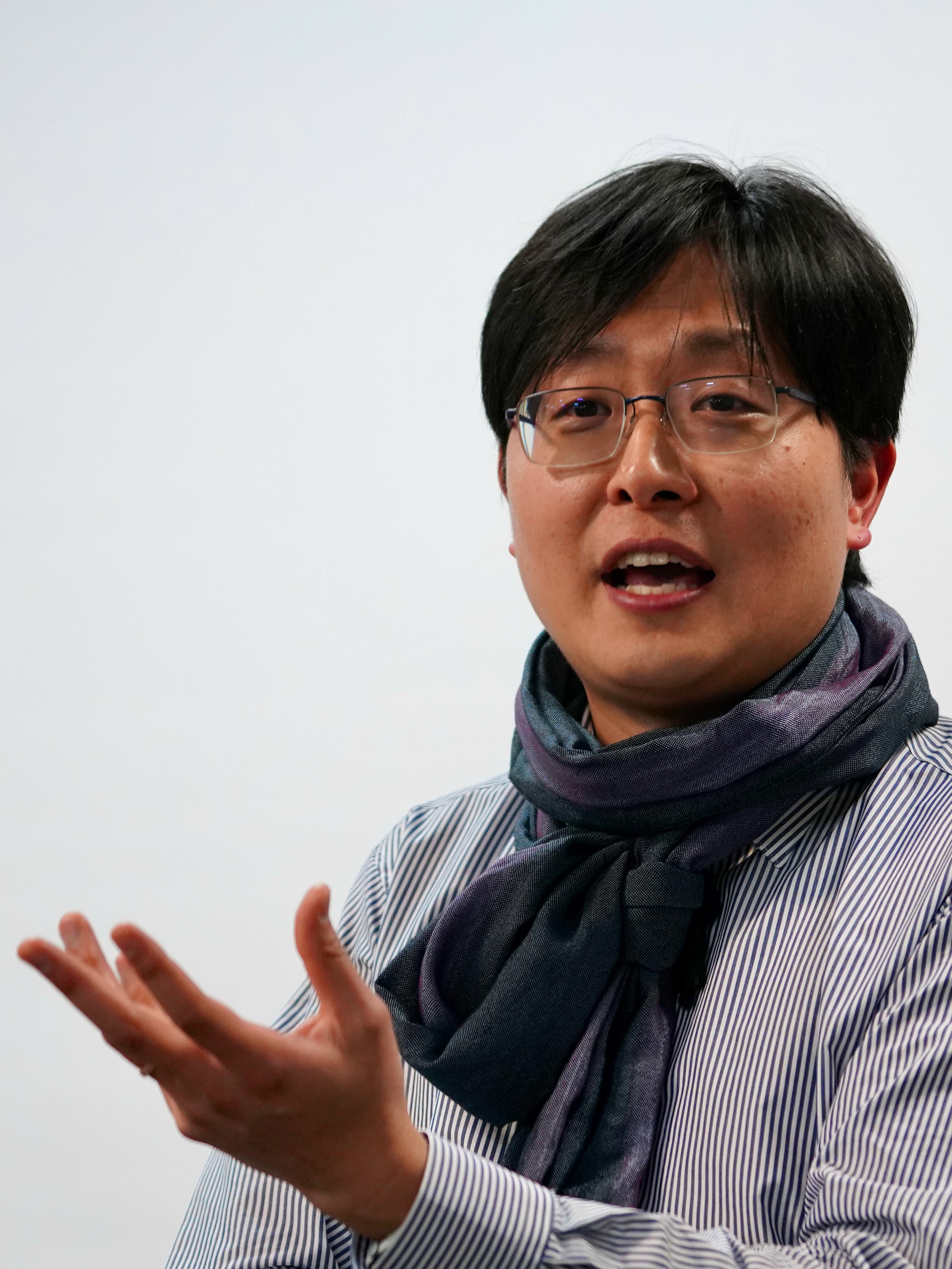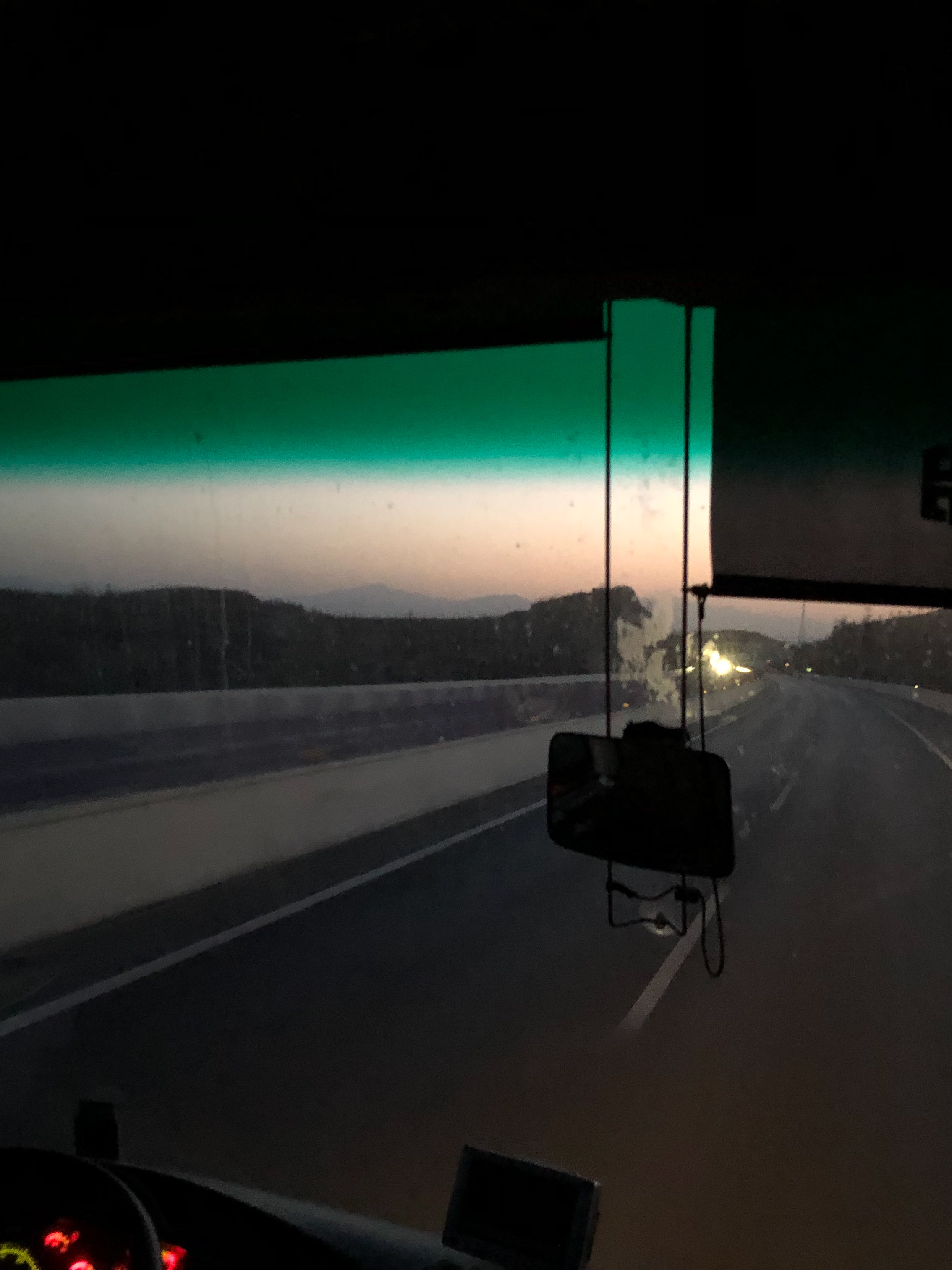As a one who teaches area studies, anthropology, and social theory, I am committed to promoting critical perspectives within the historical, social, and cultural configuration of social problems. Through the collaborative practices of reading, writing, and discussion in and beyond the classroom, I help students understand the relationship between past and current events, and between everyday life and political economic changes across various regions. I am especially dedicated to creating a classroom environment in which students learn about the structural conditions of socioeconomic inequalities, without experiencing a classroom setting that reproduces societal inequality and discrimination.
As a lecturer, I implement teaching and evaluation methods that support minority students' success in academic achievement and personal growth. Through organizing small group discussions and class presentations, I assist students in building public speaking skills. I evaluate students' written assignments based on the improvement they make in the revisions. In this way, students develop better writing skills and, more importantly, are not discouraged due to lack of training in previous educational programs. As a mentor for undergraduate and graduate students, I advise students about successfully pursuing their academic interests while maintaining health, social and family life, and community involvement. I believe the balance between academic work and personal life particularly matters for the success of minority students, whose situations are more precarious in the higher education environment that naturalizes overwork.
My teaching interests include: economic anthropology; globalization; nationalism in South Korea and China; logistics and infrastructure; commodity supply chains; inequality and discrimination; anthropology of food; anthropological theory and methods.
I taught these courses at Loyola Marymount University (2022-5):
Economic and Political Issues in Contemporary Asia
What is happening in Asia today? How are these political and economic events related to the historical formation of Asian societies? How are Asian countries and people interconnected with one another to shape current events? More importantly, what is Asia, and how come does Asia matter to our everyday lives here?
This three-part course introduces a few crucial moments, places, people, things, and ideas that have shaped Asian societies in the 20th and 21st centuries. The first part focuses on the colonial and imperial orders in the early 20th century and how they affect the current political debates in Asia. The second part examines the series of wars and violence in mid-20th century Asia and lingering trauma. The third part explores the economic development in late 20th and early 21st century Asia and its implication on gender, class, and culture. Reading and discussing the literature on Asian societies in Anthropology, Sociology, History, Cultural Studies, and Political Science, students will build up interdisciplinary insight into the current events in Asia.
The course offers various opportunities to learn more about political and economic issues in Asia outside the classroom. Attending and participating in on-campus events, museum exhibitions, and film screenings, students will deepen their understanding of Asian societies through artistic representations and reflect on their relationship with Asian societies, people, and cultures.
Food in Asia, Asia in Food
Food is an essential part of human (and non-human)’s biological survival, but its production, circulation, and consumption are complicatedly intertwined with political, economic, social, ethical, and cultural problems. In this course, students will deepen their understanding of Asian societies and communities through careful observation, analysis, and reflection on “Asian” food. The course combines academic discussion of anthropological texts with experimental fieldwork in Asian communities in Los Angeles. In this way, students will apply what they learn from the classroom to their everyday lives and milieu. Classroom discussion has three parts. The first part introduces anthropological literature on food, contextualizing everyday practices of cooking and eating within broader sociocultural dynamics. The second part discusses changing food and foodways in Asia, particularly focusing on how food reveals important social transformations in globalizing Asia. The third part examines the social tension and mobility behind Asian food outside Asia, reflecting on the inequality and discrimination behind the production and consumption of “Asian” food.
Classroom learning and conversation will be expanded to student-led group projects: “Scavenger hunts: Asian Food in Los Angeles.” Student project groups will conduct fieldwork in Asian communities in Los Angeles, research the production, circulation, and consumption of “Asian” food in the communities, and develop scavenger hunts based on their collaborative research. Students will also play the hunts and reflect on what they learn from creating and playing scavenger hunts.
Transpacific Korea
South Korea has accomplished impressive economic and political development in recent decades. Its successful incorporation into the global capitalist economy and democratic revolution against military dictatorship is now followed by praise for its “global” soft power in areas such as K-Pop. However, South Korea’s economic, political, and cultural “success” accompanies uncomfortable fissions, discrimination, and displacement on a transnational scale. Koreans still live with the trauma of ideological division, which led to the Korean War and territorial division. Many Koreans were forced to leave their homes to escape Japan’s colonial occupation, political oppression under authoritarian regimes, and economic difficulties. South Korea’s “success” has facilitated the return of these Koreans—adoptees, overseas Koreans, and North Korean refugees, but in selective and ambivalent manners. The global expansion of South Korean companies has promoted the overseas migration of middle-class South Koreans, whose encounters with old Korean migrants are often tainted with misunderstanding and uncalled-for discrimination.
Then, how can we understand Korean society, not within a narrow scope of South Korea but through transpacific mobility and connections of Korean people, commodities, and cultures? Drawing upon the literature in Anthropology, Sociology, History, and Media Studies, Transpacific Korea aims to develop students’ perspectives on the transnational mobilities, connections, and dynamics that have shaped Korean societies and communities. Through class reading and discussion on Korea’s recent histories, students will contextualize the implication of colonialism, cold war, and neoliberalism in contemporary Korean societies. Students will build up knowledge of Korean society and culture in global contexts by reading and discussing sociological literature on South Korea and overseas Korean communities. In Transpacific Korea, students will engage in active learning beyond academic reading and discussions. Based on the interdisciplinary approaches that students will develop in this course, students will analyze and discuss the artistic representation of Korean societies and cultures in film, and conduct independent research on “Transpacific Korea around Us.” Through class readings, conversations, film presentations, and independent research, students will apply class learning to what they experience and witness in their everyday lives, reflecting on transnational connections, inequalities, and discrimination beyond Euro-American contexts.
I taught the undergraduate courses at the University of Chicago (2021-2) including:
Anthropology of Business and Corporations (Winter 2022)
What is a corporation? What is happening inside a company, and in what kinds of social, economic, and political relationships does a company operate? How and why do companies rely on mathematic models to assess the past and act upon futures? How does a corporation resolve the tension between ethical responsibilities and profit-making purposes? The course helps students understand the basic structures and fundamental logics of business operation as they explore sociocultural networks inside and beyond the companies. Through reading academic literature on corporation and business in anthropology, sociology, and critical social theory, students will develop insights on 1) cultural and communicative dynamics inside the corporation; 2) economic, social, and political implications of accounting and future-projecting models; 3) business strategies to identify and reach “markets,” and 4) ethical stakes of business operation and corporate management.
Self, Culture, and Society (Autumn 2021)
What is a society, and how do we study it? Self, Culture, and Society-1 is the first part of a three-quarter sequence designed to explore the foundational problems, basic concepts, and analytic toolkits in modern (and “western”) social science. In this quarter, we explore the texts from political economy theorists who studied the dynamics in capitalist societies. We read their texts carefully and critically while questioning: is a modern, industrial, and capitalist society different from others? How did societies change with the capitalist production and distribution of goods? What roles do markets play in establishing and reconfiguring societies? Why and how do (or should) states regulate, intervene, and transform the economic relations among people? The texts provide insights into the historical development of capitalist societies in 18th and 19th century Europe, where most authors lived and observed the radical socioeconomic changes, in conjunction with other parts of the world.
Power, Identity, and Resistance (Winter 2019)
"Power, Identity, and Resistance" examines multiple and interrelated aspects of power, from the roles of economic markets and political states to the social structures that determine individual, class, and gender inequalities. Winter Quarter focuses on the work of central figures in modern political economy and social theory. The course highlights the organization of economic process and the ways in which it relates to social and political relations and institutions. The central questions are these: How historically distinctive is the modern form of capitalist economy? Is inequality an inevitable outcome of capitalist economic development? What is the role of power in economic life? How should we think about the relationship between political power and economic practice? The course will also examine the genealogy and implication of important concepts in political economy and social theory, including labor, commodity, value, money, capital, production, exchange, and consumption.
I have also served as a teaching assistant for undergraduate and graduate students in:
Modes of Inquiry 2: Multimodal Experiments (ethnographic methods course for graduate students)
Anthropology of Food (undergraduate)
Anthropology of Food and Cuisine (undergraduate)
Power, Identity, and Resistance 2 & 3 (undergraduate)

